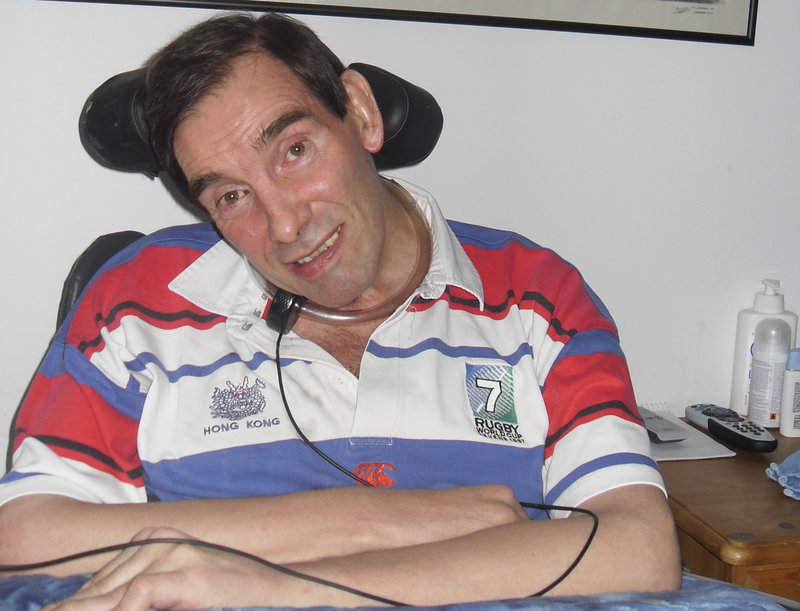LONDON – Tony Nicklinson, paralyzed and unable to speak, found life so unbearable he wanted to die. On Wednesday, the 58-year-old Briton got his wish. His family said he died of pneumonia at home.
In January, Nicklinson asked the High Court to declare that any doctor who killed him with his consent would not be charged with murder. Last week, the court rejected his request, a decision that Nicklinson said had left him “devastated and heartbroken.”
Nicklinson was a former corporate manager and rugby player who suffered a stroke in 2005 that left him with locked-in syndrome. He was unable to speak or move below his neck and required constant care. Nicklinson communicated mostly by blinking, although his mind had remained unaffected and his condition was not terminal.
Nicklinson had argued that British law violated his right to “private and family life” as guaranteed by the European Convention on Human Rights, on the ground that being able to choose how to die is a matter of personal autonomy. He had previously described his life as “a living nightmare.”
One of his daughters said on Twitter that before he died, Nicklinson had asked them to tweet “Goodbye world the time has come, I had some fun.”
Police said they would not be investigating Nicklinson’s death. “We can confirm he passed away,” a police spokesman said on customary condition of anonymity. “His death certificate has been signed by a doctor, so it is not a matter for Wiltshire Police or the coroner.”
Saimo Chahal, Nicklinson’s lawyer, said his health had deteriorated over the week-end after he caught pneumonia. Nicklinson had legal documents drawn up in 2004 to refuse any life-saving treatment. He had also been refusing food since last week.
Nicklinson had said that even if he were granted the right to die, he would not want to be killed immediately, but just wanted to know that the option existed.
Experts weren’t sure what impact, if any, his death might have on the ongoing euthanasia debate in Britain.
Penney Lewis, a law professor at King’s College London, said previous deaths of euthanasia advocates didn’t have any effect on changing laws to allow the practice.
“The evidence seems to be that parliaments are not galvanized into action by the deaths of those who have been fighting for (euthanasia) legalization,” she said in an email.In Europe, only Belgium, Luxembourg and the Netherlands allow euthanasia. Switzerland allows assisted suicide and is the only country that helps foreigners die at a clinic near Zurich.
Send questions/comments to the editors.



Success. Please wait for the page to reload. If the page does not reload within 5 seconds, please refresh the page.
Enter your email and password to access comments.
Hi, to comment on stories you must . This profile is in addition to your subscription and website login.
Already have a commenting profile? .
Invalid username/password.
Please check your email to confirm and complete your registration.
Only subscribers are eligible to post comments. Please subscribe or login first for digital access. Here’s why.
Use the form below to reset your password. When you've submitted your account email, we will send an email with a reset code.